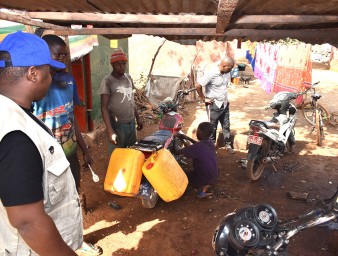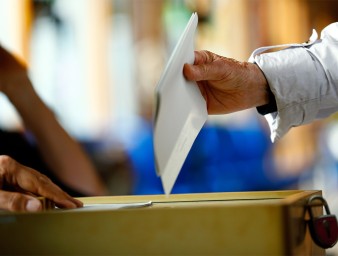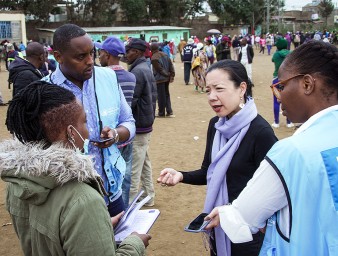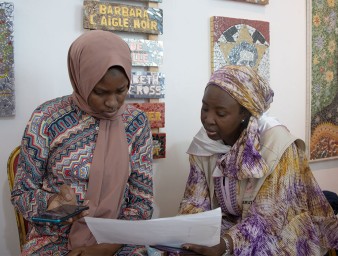Senegal election is a boost for coup-prone region
06 June 2024
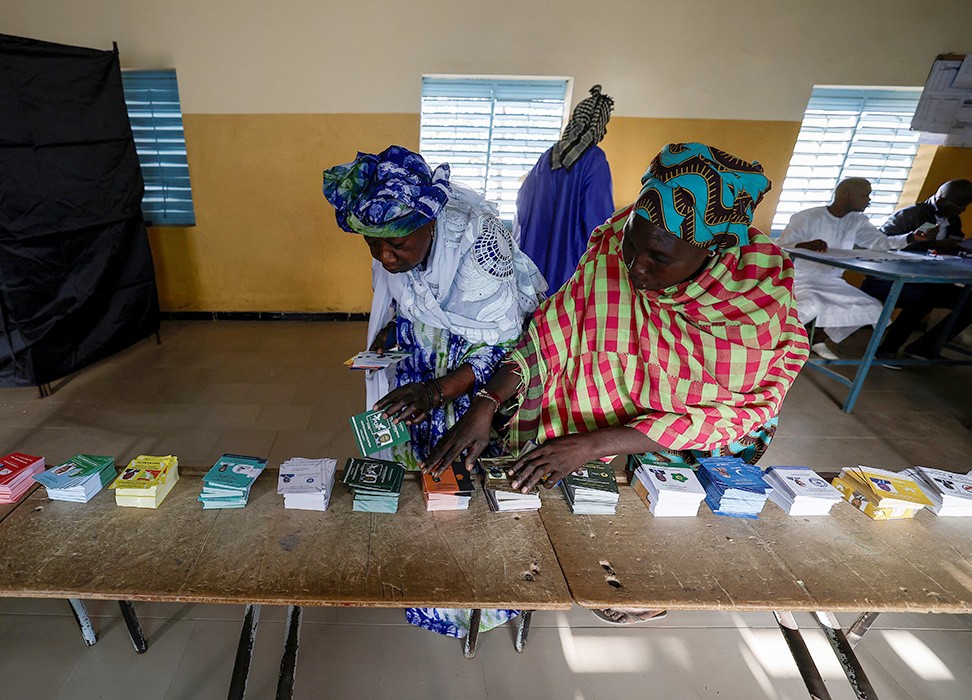
Leaning on a cane, Mamie Sakho made her way towards a voting centre in a neighbourhood in central Dakar. The run-up to Senegal’s recent presidential election had been marred by unprecedented violence and political tensions that were testing one of West Africa’s most stable democracies, but the 80-year-old Sakho was determined to vote and make her voice heard.
“I've been voting since the introduction of a multi-party system in Senegal in 1974,” she said. “Despite my illness and age, I've come to do my duty.”
Despite a tumultuous electoral climate, the March 24 vote – which had been delayed from its original date on Feb. 25 – passed smoothly, as millions of Senegalese showed up at the polls, including many older persons, women and young people. No major incidents were reported, and a peaceful transition of power took place, an outcome that makes Senegal’s democracy and institutions stand out in a region prone to coups and violent upheavals, human rights activists say.
Members of Senegal’s civil society played an important role in upholding the respect for civil and political rights during the electoral process.
Women observers
One such group was the Women's Watch Platform for peaceful elections called Ëtu Jamm, or “Peace Space” in Wolof. Supported by the UN Human Rights Office Regional Office for West Africa (OHCHR-WARO), Ëtu Jamm is an election monitoring group composed of 50 Senegalese and pan-African women's civil society organizations and coordinated by the NGO Femmes Africa Solidarité (FAS).
During the election, Ëtu Jamm deployed women observers, who monitored the vote in real time at polling stations in Dakar and in the regions. The Office supported Ëtu Jamm to strengthen the capacities of its election observers by organising trainings on human rights and gender in election monitoring, said Rania El Rajji, OHCHR regional gender advisor.
“The idea was to place human rights at the heart of the electoral monitoring process,” El Rajji explained, adding that women play a central role within electoral processes and constitute a central pillar of peace, as recognised in the United Nations Security Council Resolution 1325 on Women, Peace and Security.
“An election human rights monitoring involves active monitoring and observation. Some things can be more visible, for example, if polls are open or not. But other things can be less visible, for example, if the polling centres are accessible to people with disabilities, or if voting hours coincide with a time when women are doing domestic chores during the Eid period, or if they feel safe to go out and vote in a particular centre,” she said.
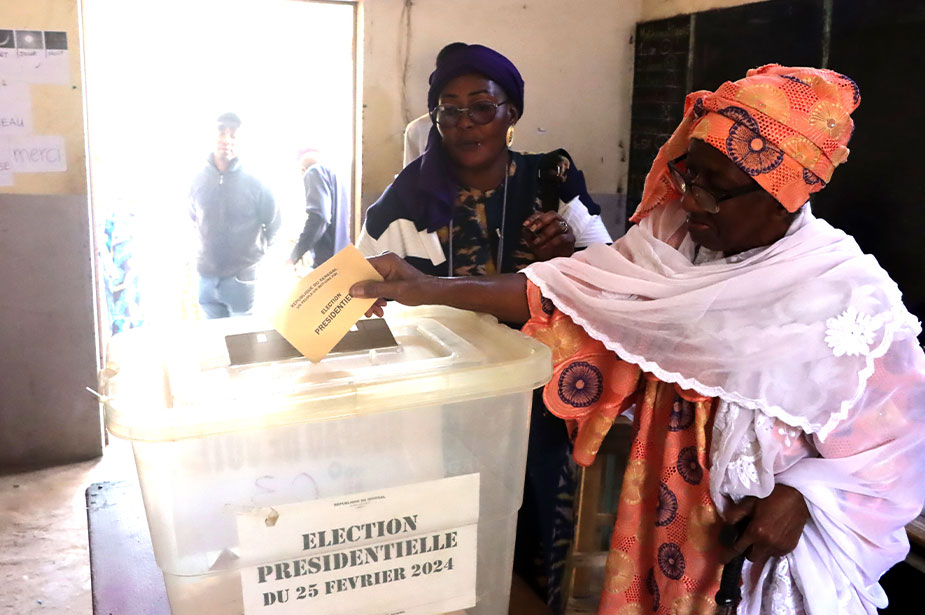
Mamie Sakho casts her vote at the Dieuppeul-Derklé 2 voting center in Dakar. © OHCHR-WARO/Habibou Dia
Like Sakho, many women and older persons sought out female monitors for assistance on election day to make sure they could exercise their right to vote. Asthou, 18, arrived at the same centre to vote for her first time. Asthou seemed a bit lost at the beginning, but an Ëtu Jamm human rights monitor accompanied her to the urn and explained how to correctly cast the ballot.
“The participation of women and young people in the organization of the ballot was high, with nearly 29% of polling stations run by women and 67% of political party representatives in polling stations made up of young people aged under 35”, said Mouhamadou Sow, a programme analyst for the Office.
Peaceful elections
To strengthen human rights-based electoral supervision, the Senegalese Human Rights Committee (CSDH) deployed a human rights-focused observation mission under the initiative Wotte ci Jamm, or "peaceful elections.” The mission was made up of 54 observers spread over eight regions and 18 departments.
With the support of OHCHR-WARO and the UNDP Social Cohesion Project, CSDH observers received training to monitor the participation of marginalized and vulnerable populations in the vote, including older persons and persons with disabilities. The observers also verified security guarantees, and the participation of women in the organization of the vote and in the composition of the security workforce, said Jacob Seq Ngom, head of the observation mission.
"The deployment of observers for the first time in the history of CSDH show electoral officials and all actors made significant efforts to guarantee the expression of civil and political rights, in line with Senegal's commitment to the International Covenant on Civil and Political Rights,” said Pape Sene, CSDH president.
Under its mandate to ensure elections meet human rights standards and are held in an environment in which everyone can exercise their fundamental rights, OHCHR-WARO has engaged with Senegal civil society and the national human rights institution to widen the democratic space and promote people's participation. Such work has included advocacy, technical assistance, and workshops with journalists and civil society groups.
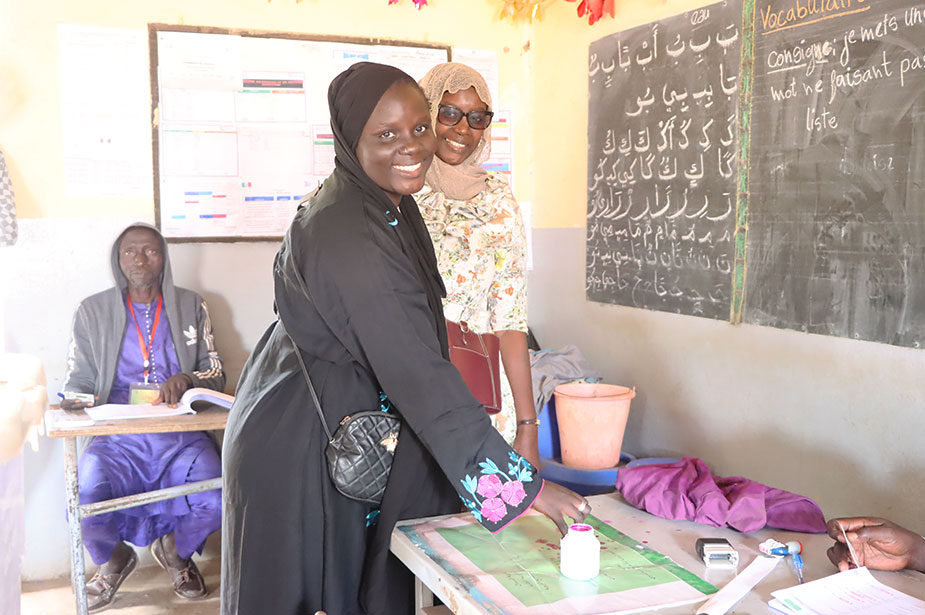
Women and young people turned out in large numbers to vote in the presidential vote. © OHCHR-WARO/Habibou Dia
Senegal has a long tradition of democracy and respect for human rights, but the past three years have been scarred by sometimes violent social tensions, an erosion in civic space, limits on press freedom and peaceful assembly, and arrests of opposition members. Under its mandate, the Office has been monitoring and documenting human rights violations and engaging with civil society and partners as part of a prevention strategy.
Ahead of the vote, the Office deployed a Surge Team to enhance human rights monitoring, analysis and preventive actions in support of a peaceful and inclusive electoral process, focusing on the right to political participation. The Team carried out a comprehensive human rights monitoring strategy, which included meetings with civil society groups and election observers, and trainings of journalists and the CSDH.
“In addition to supporting the first human rights election observation mission, and women from civil society, we also worked a great deal with media reporters in charge of election coverage,” said Robert Kotchani, OHCHR regional representative. “Jointly with the United Nations Information Center, a total of 41 journalists in charge of covering the election were trained in how to recognize hate speech and prevent its spread, and also to prevent disinformation.”
West African democracy
Senegal’s peaceful transfer of power was greeted with relief by rights defenders. Former president Macky Sall, who had tried unsuccessfully to delay the vote until after the expiry of his mandate, congratulated the opposition winner. Such outcome stands out in a region which has seen militaries seize power in Niger, Burkina Faso, Mali and Guinea. A recent survey of 39 countries by Afrobarometer, an independent African research network, showed that support for democracy has weakened over the past decade.
“Senegal and its strong institutions have demonstrated that the country remains the beacon of stability in the region and that democratic change of government is possible through the ballot box,” said Simone Heri-Terrence, coordinator of the Emergency Response Team at OHCHR-WARO.
While core democratic principles have been undermined in several countries in the region, Africans value democratic and accountable governance, according to another Afrobarometer survey. The poll showed that two thirds of Africans prefer democracy over any other system of government.
But Afrobarometer Board Chair E. Gyimah-Boadi warned that a widening gap between citizens’ expectations and the actual delivery of democratic governance is fuelling disillusionment and instability.
“Average Africans desire to live under a democratic, accountable government, but their leaders are failing to meet these expectations,” Gyimah-Boadi said during a recent conference.
